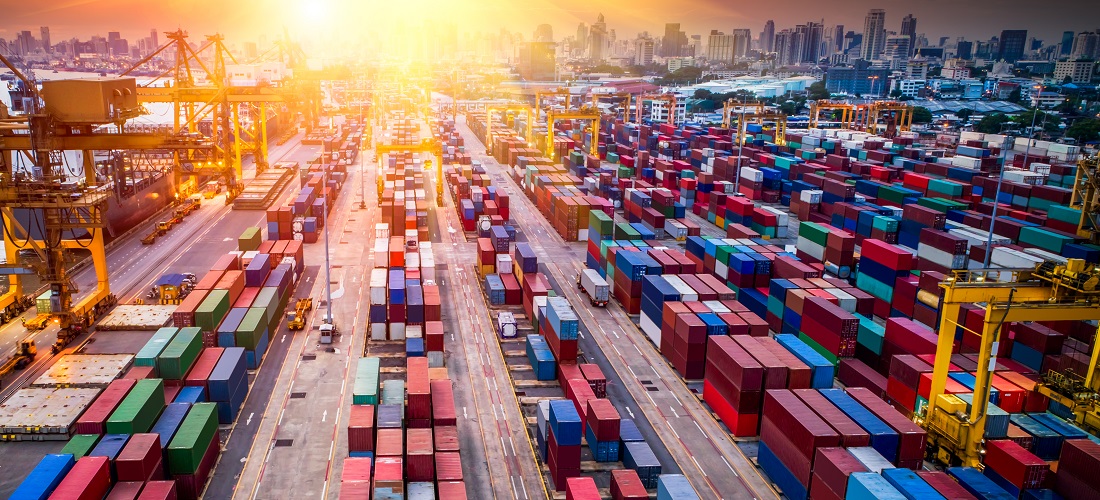
Antidumping complaints surge in 2024, could hit record this year
Mar, 26, 2025 Posted by Gabriel MalheirosWeek 202513
Brazil’s Department of Trade Defense (DECOM), an agency under the Ministry of Development, Industry, Trade and Services, may receive a record number of trade complaints in 2025, driven by a surge in imports and signs that the Lula administration is embracing policies to support domestic industry. A potential realignment of global trade flows, further stirred by announcements from U.S. President Donald Trump, could also fuel industry requests for protective measures.
A survey conducted by law firm Pinheiro Neto at the request of Valor found that DECOM received 117 petitions last year—an increase of 165.9% from 2023, when there were 44—bringing the number close to the all-time high of 128 set in 2011. In 2022, only 17 such petitions were filed.
Most petitions request antidumping measures, which target cases where exporters sell products abroad at prices lower than in their domestic markets. A smaller portion involves countervailing duties, imposed when foreign goods benefit from proven subsidies, usually involving Chinese products.
DECOM data show 43 trade defense investigations are currently underway, 24 of which target Chinese goods. The cases are largely concentrated in steel, plastic, and tire products, though there are also probes into powdered milk and hypodermic needles. One anticipated petition may come from ANFAVEA, the association representing automakers, which has signaled interest in taking action against Chinese manufacturers.
These are the top imports from China, shipped in containers, that arrived in Brazilian ports in 2024. The data was derived from DataLiner.
Imports from China | Brazil | 2024 | TEUs
Source: DataLiner (click here to request a demo)
The powdered milk case involves imports from Argentina and Uruguay, with the petition filed by the Brazilian Confederation of Agriculture (CNA). The hypodermic needles under investigation are of Chinese origin. Currently, 81 antidumping measures are in effect in Brazil.
Antidumping, countervailing duties, and safeguard measures fall within the rules of the World Trade Organization (WTO), though many of the tariffs announced by Mr. Trump lie outside this regulatory framework.
In addition to the growing number of petitions, experts anticipate an increase in the suspension or modification of protective measures on public interest grounds—meaning that, after evaluation, such measures may be lifted if their costs outweigh their benefits. These decisions, however, are only made at the end of an investigation. Conversely, the number of provisional measures—temporary protections granted early in a process—is expected to decline. Experts say the key question is how inflation concerns within the government will influence decisions.
Fernando Benjamin Bueno, a partner at Demarest Advogados specializing in international trade and government relations, believes demand for antidumping actions will remain strong this year, largely due to ongoing shifts in global trade flows. “We’re seeing the same factors that drove the increase in petitions in 2024, with the main one being trade diversion,” he said.
He noted that trade diversion has already prompted countries to adopt antidumping measures. In Europe, for example, it has become more common to see protective actions with social or environmental goals, such as bans on goods produced in deforested areas. Mr. Bueno pointed to cases involving goods like hairbrushes to illustrate that antidumping can apply to any domestic producer facing unfair competition from imports.
Pent-up demand
Renê Medrado, a partner at Pinheiro Neto focused on trade law, said the increase in petitions also reflects pent-up demand, which gained momentum with the new administration and its focus on industrial policy. In addition to antidumping cases, the federal government has adopted other tariff measures to protect the national industry, particularly for steel and chemical products.
Looking ahead, Mr. Medrado expects further growth in 2024, amplified by what he called the “Trump effect.” “The tariff measures imposed by the Trump administration bring more uncertainty for exporters, who will look for major markets for their goods, such as Brazil,” he said. In response, Brazilian industry may seek protection against this new wave of imports.
Renata Zucollo, a partner at Mattos Filho specializing in antitrust law, said it’s typical for governments more focused on industrial policy to see a rise in antidumping petitions—something that also happened during President Lula’s first two terms. That’s why, with his third term, an upward trend was already expected. The new catalyst, she added, is growing concern about global trade disruptions linked to Mr. Trump and the spread of protectionist policies around the world.
Domestically, she highlighted a critical issue: protective measures on intermediate goods—those used as inputs in manufacturing—should be subject to stricter scrutiny, given Brazil’s inflationary environment. “If an input becomes more expensive, the industry can either absorb the cost—cutting into margins—or raise final prices,” she said. “The big challenge in trade defense will be intermediate goods, amid higher inflation.”
Mr. Bueno, from Demarest, argued that these measures have little impact on inflation because they apply to a small fraction of Brazil’s total imports.
However, Adriana Dantas, a partner at Lefosse Advogados specializing in compliance, investigations, and international trade, believes the pace may slow later this year. She pointed to the appreciation of the U.S. dollar against the Brazilian real in 2024 as a key factor, given that exchange rates significantly influence import volumes. “I think the pace could ease because it becomes harder to build a strong case,” she said.
While her firm is seeing a high volume of inquiries, many do not progress into formal petitions due to lack of viability, she noted.
The Ministry of Development, Industry, Trade and Services declined to comment.
Source: Valor International
-
Sugar and Ethanol
Jun, 26, 2019
0
São Martinho plans to process 8% more sugarcane in the 2019/20 harvest
-
Grains
Jul, 25, 2022
0
Fertilizer cargo from Russia heads to US as many worry about food shortages
-
Blog News (ENG)
Dec, 24, 2024
0
Brazilian Foreign Trade Reaches USD 11.5 Billion in Third Week of December
-
Economy
Jan, 07, 2025
0
Exports of Manufactured Goods from Brazil Reach Highest Value Since 1997


